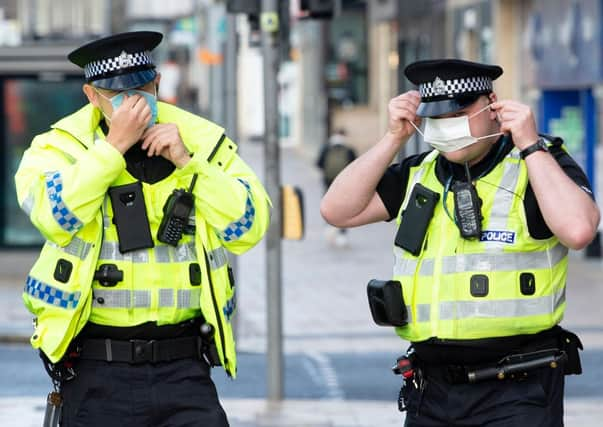Covid fines must be seen to be fair – leader comment


Maintaining public confidence in the measures taken to tackle the coronavirus outbreak is vital to their success.
It is one reason why politicians have sought to stress the message that we are “all in it together”. Psychological studies have confirmed what common sense tells us that if people believe everyone else is following a set of rules, they are much more likely to stick to them than if they think they are widely flouted.
Advertisement
Hide AdAdvertisement
Hide AdThe outpouring of anger over Dominic Cummings’ lockdown trip from London to his parents’ home in County Durham is evidence of what happens when the public suspects those in positions of power think the rules do not apply to them.
So, on the face of it, it is worrying that people living in Scotland’s most deprived areas are 12 times more likely to receive a Covid-related fine than those living in the wealthiest neighbourhoods.
This could give rise to the suspicion that the rules are less rigorously enforced on those who have money and that poorer people are somehow being held to a higher standard.
This may not be true – a correllation between two factors does not necessarily prove a casual link between them – but sometimes perceptions can be as important as reality.
Professor Susan McVie, who took part in the study, said the figures were “startling” and raised “the possibility that there may have been justice inequalities, in terms of who has been subject to enforcement and the drivers of their non-compliance”.
Deputy Chief Constable Will Kerr suggested practical problems might play a part in the disparity, saying it was “a concern that those from our most deprived areas have found it more difficult to comply with highly restrictive measures”. He also stressed Police Scotland was “acutely aware” of its responsibility to exercise the powers given to them to enforce the lockdown restrictions “with the consent of the public” and that they were working to ensure officers carried out their new duties “consistently and fairly”.
We should remember that the police were suddenly asked to perform a significantly different role and, for the most part, have risen to the challenge with their typical good sense and tact. But, just as it is important for the public to support them in this task, they need to make sure not just that the system is fair, but that it is also seen to be fair.
A message from the Editor:
Thank you for reading this article on our website. While I have your attention, I also have an important request to make of you.
Advertisement
Hide AdAdvertisement
Hide AdWith the coronavirus lockdown having a major impact on many of our advertisers - and consequently the revenue we receive - we are more reliant than ever on you taking out a digital subscription.
Subscribe to scotsman.com and enjoy unlimited access to Scottish news and information online and on our app. With a digital subscription, you can read more than 5 articles, see fewer ads, enjoy faster load times, and get access to exclusive newsletters and content. Visit www.scotsman.com/subscriptions now to sign up.
Our journalism costs money and we rely on advertising, print and digital revenues to help to support them. By supporting us, we are able to support you in providing trusted, fact-checked content for this website.
Joy Yates
Editorial Director
Comments
Want to join the conversation? Please or to comment on this article.